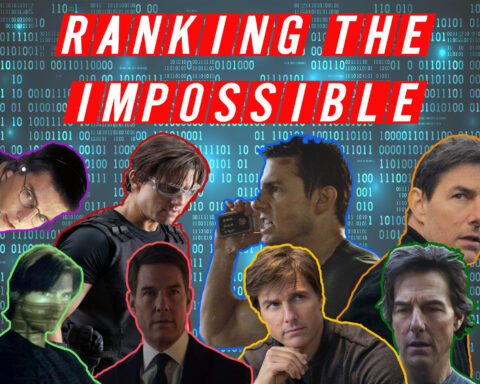Megalopolis should be retitled “Mega-FLOP-olis.” The latest film from Francis Ford Coppola is a blatant sign of the cinema legend’s declining prowess.
Coppola’s flick tries to be a grand statement on the future of America by creating a contemporary take on the fall of ancient Rome. Instead, it’s an example of what happens when you bottle 40 years of ideas into one movie – a bloated mess that crumbles like the Roman Empire under the weight of its own grandeur.
The film follows genius architect Cesar Catilina, played by Adam Driver, as he tries to build the new utopian city Megalopolis. Mayor Cicero, played by Giancarlo Esposito, objects to the project. Megalopolis’s buildings and architecture were supposed to be built with an element invented by Cesar that somehow has the ability to defy physics. However, there is no explanation to how Cesar invented the element or why it behaves the way it does.
The focus of the film is an uninteresting love story between the mayor’s daughter Julia and Cesar, driven by weak chemistry between Driver and Nathalie Emmanuel. Oh, did I mention that both of them can stop time for some reason?
Inexplicably at some point in the film Cesar loses his ability to stop time. Just as inexplicably as they have these powers, in one scene we have to witness one of the most clíche cinematic scenes in a Coppola movie, when Julia helps Cesar get his powers back because she invokes the age- old “do it for me” shtick, and it works because why not. At this point, whenever they would say “Time, stop,” I would beg, “Please, don’t!”
Trying to understand the film’s plot is like learning rocket science in a foreign language — it’s impossible and hurts your brain.
The visual effects were poorly designed as well. Some scenes were just graphic slides of pretentious yet meaningless “declarations” etched in Roman marble vaguely describing a “new world.”
The slides are written like a person that thinks they are smarter than everyone else because they found random philosophy quotes in their Facebook feed. It didn’t help either that the quality of these slide scenes looks like the handiwork of a student taking an intro to graphic design class for an easy A. How does this happen with Coppola personally funneling $120 million into this project from selling parts of the vineyard? He says that his children “don’t need a fortune,” but I bet they would certainly want to see efficient results from their blown inheritance.
The film is further dragged down by the obvious green screen effects and uneven pacing that makes the film feel like a car that is braking and accelerating repeatedly instead of steadily cruising.
These shortcomings are disappointing as the film really does have flashes of greatness (think: dazzling sequences, gorgeous cinematography, and some solid acting). Aubrey Plaza, Shia Labeouf, and Giancarlo Esposito are standouts as the antagonists who do the most with the slop they were given. Plaza delivers “You’re anal as hell, Cesar, I, on the other hand, am oral as hell,” with more class than you would expect from such a line.
The circus performances and club sequences also have flashes of Coppola’s former directing flair. One standout sequence is of the circus performers twirling in strung up, glittering rings high in the air while other performers flipped and tumbled to the roaring joy of a crowd on the ground. The strident score complementing the scene raises your adrenaline in a way that makes you forget that what is happening on screen is not happening to you. This sequence is reminiscent of intense moments in the auteur’s other masterpieces such as Apocalypse Now and Bram Stoker’s Dracula.
When he isn’t stiffly displaying his love for Julia, Cesar moans on and on about how much of a “genius” he is because he is building “Megalopolis.” It only makes one wonder if Coppola was going for something “meta” here.
Laurence Fishburne — who has slowly been making a return to movies after a hiatus — is misused here despite the movie using his strongest skill as an actor: his narration. The narration from Fishburne actually turns out to be one of the most annoying things about the movie as Fishburne spouts cryptic statements from off screen whenever there is any slight development in the story. In a two-and-a-half hour movie, this happens way too damn often. While it’s great to see Fishburne on screen again, it would have been nice for there to be a purpose for his inclusion, and for that inclusion to not sound like a disembodied voice in my head that refuses to go away.
Megalopolis feels like a sad, disappointing end to a legendary filmmaker’s career. Instead of being the flawed-yet-beloved passion project of a respected filmmaker, this project is just…flawed. At 90 years old, it might be time for Coppola to hang up the camera.
At least he has some of his vineyard left.
- The most correct ranking of all Mission: Impossible movies - June 4, 2025
- Ryan Coogler just broke Hollywood’s studio system. It’s about time - May 23, 2025
- A Minecraft Movie is dumb fun - April 23, 2025
















